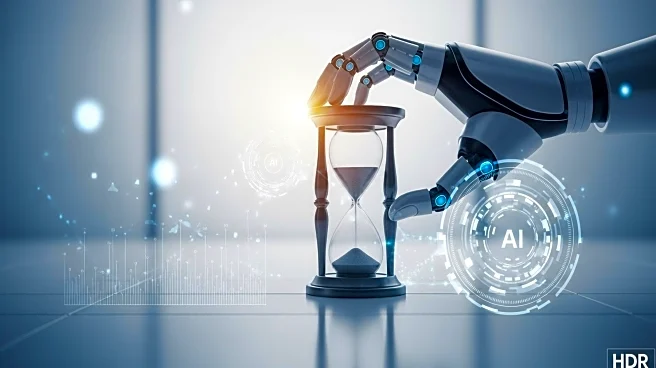What is the story about?
What's Happening?
John Chambers, the former CEO of Cisco, has expressed concerns about the current AI investment boom, drawing parallels to the dot-com crash of the 1990s. Chambers, who navigated Cisco through the internet bubble, sees similar signs of irrational exuberance in the AI sector. He warns that AI is advancing at a pace five times faster than the internet did, which could lead to significant job losses before new opportunities are created. Chambers highlights the potential for entry-level jobs, both white and blue-collar, to disappear rapidly, necessitating a shift in educational approaches to prepare the workforce for new roles. He also cautions Fortune 500 companies to adapt quickly to avoid obsolescence in the face of AI-driven innovation.
Why It's Important?
The rapid advancement of AI technology poses significant challenges to the U.S. labor market, potentially leading to widespread job displacement. This development could impact various industries, particularly those reliant on entry-level positions. The need for re-education and adaptation in the workforce is crucial to mitigate the effects of job losses. Additionally, companies that fail to embrace AI innovations risk falling behind, affecting their competitiveness and survival. Chambers' insights underscore the urgency for businesses and policymakers to address these challenges proactively to ensure economic stability and growth.
What's Next?
As AI continues to evolve, businesses and educational institutions may need to implement strategies to retrain workers and develop new job opportunities. Policymakers might consider initiatives to support workforce transitions and encourage investment in sectors poised for growth due to AI advancements. Companies will likely face pressure to innovate and adapt their operations to remain competitive in the rapidly changing technological landscape. The focus on education reform and job creation will be critical in navigating the potential disruptions caused by AI.
Beyond the Headlines
The ethical implications of AI-induced job losses raise questions about the responsibility of tech companies and governments to support affected workers. The cultural shift towards automation and AI may also influence societal values regarding work and productivity. Long-term, the integration of AI could redefine economic structures and labor dynamics, necessitating a reevaluation of traditional employment models and social safety nets.

















